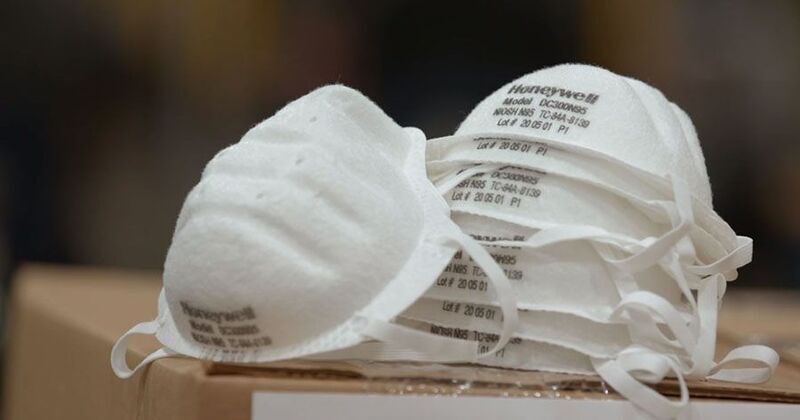
Vodafone Foundation donates €30,000 to support Mozambique over Cyclone Chido
Vodafone Foundation has pledged €30,000 to Save the Children in response to the devastation caused ...

Honeywell plants were repurposed to produce hand sanitizers and face masks to meet growing need of medical supplies under the coronavirus (COVID-19) crisis.
Acting responsibly, the company took swift actions to contribute to the fight against the pandemic.
Two Honeywell chemical manufacturing plants were reconfigured to produce hand sanitizer.
One facility is in Muskegon, Michigan. That plant manufactures high-purity solvents and blends, making more than 1,500 products that can be used for environmental analysis, precision cleaning, pharmaceutical testing and more. The other plant is in Seelze, Germany. That facility produces more than 500 products, including high-purity solutions for laboratory research and testing applications.
The facilities repurposed existing equipment to accommodate new hand sanitizer production guidelines from US and German regulators.
“We leveraged remote working tools to accelerate cross-functional decision making from the regulators to Honeywell down to the operating business,” said Omar Vikin, general manager, who has been in the specialty chemical industry for more than 20 years. “What would take months— we did it in hours.”
“It required reconfiguring process flow to allow charging of the mixing vessels based on the revised guidelines and formulation from the regulators,” Omar said. “We had to read, interpret and implement the mixing procedures and we trained personnel in the safe handling of the ingredients.”
The company decided to donate produced hand sanitizers to governments to help with the demand that has increased due to the coronavirus pandemic.
Those governments will distribute the hand sanitizers to institutions in need.
Honeywell also transformed its facilities in Rhode Island and Arizona to manufacturing N95 masks, along with scaling up production of personal protective equipment (PPE).
The Phoenix facility in Arizona was built in 1942 and was originally used for designing and producing engines for World War II. It has recently been used as storage for aerospace parts.
Now it’s also being used to produce masks to supply the Strategic National Stockpile for health care, safety and emergency services workers.
“There’s different ways to be heroes and this is one of them,” said Glen Tran, plant director who has led the transformation of the facility. “It’s an essential service that we’re doing.”
Speed and flexibility helped get the facility ready. “It took a lot of team effort from many different functions,” Glen said. And he knows first-hand about how to be flexible.
The pandemic was a litmus test for companies belief in Corporate Social Responsibility (CSR).
Vodafone Foundation has pledged €30,000 to Save the Children in response to the devastation caused ...
The European Commission has adopted a decision to disburse €1 billion in loans to Egypt following ...
Opening the Helwan University clinic brings the total number of Safe Women Clinics to 48 ...


اترك تعليقا